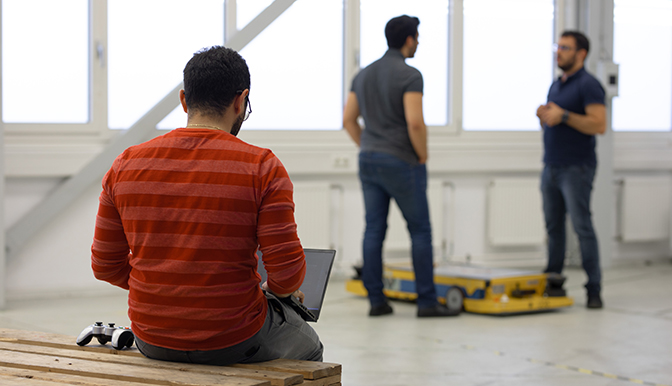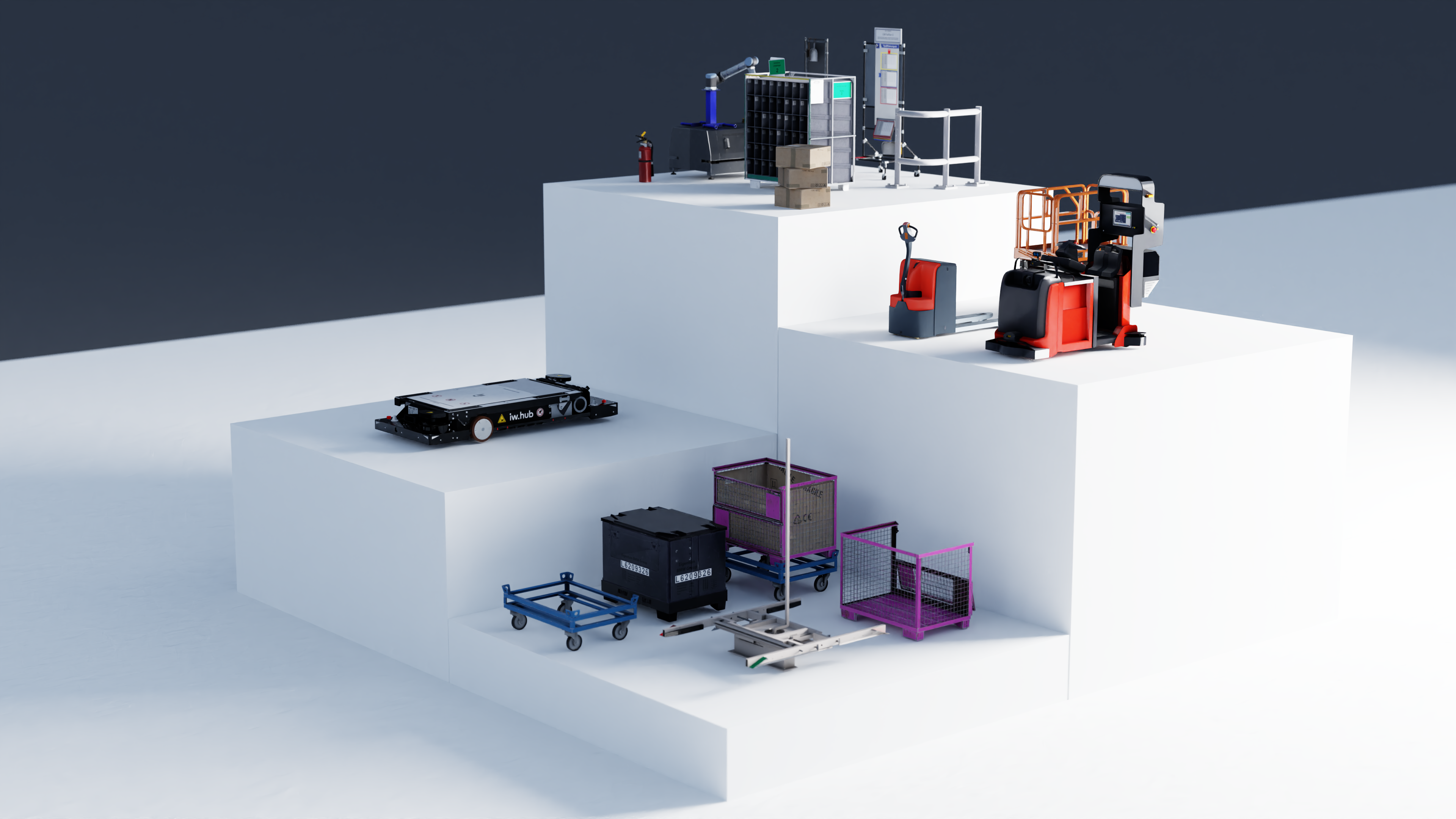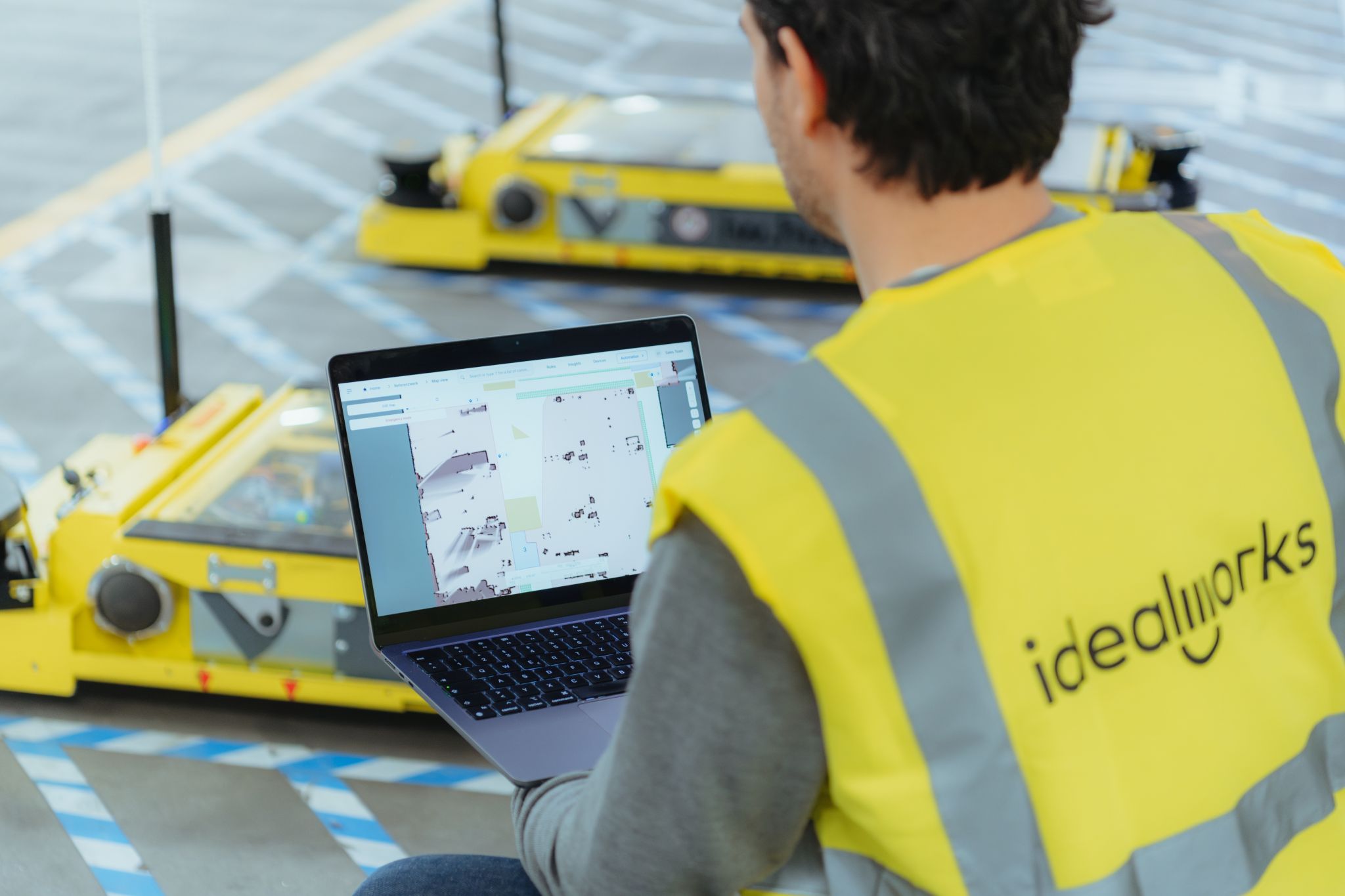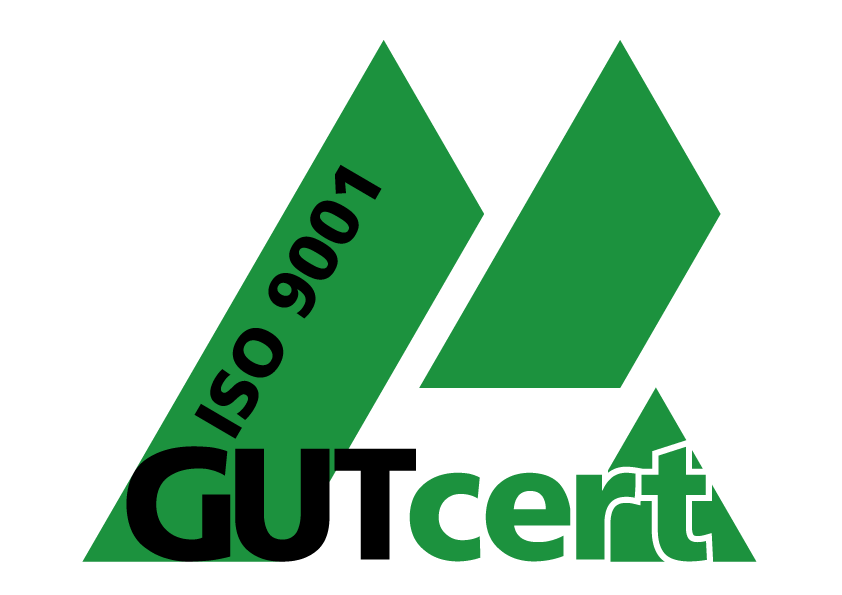November, 2020
Intralogistics is omnipresent in the automotive industry and is often an enormous cost driver as well as being a complicated process. Here a sensibly applied automation can relieve the employees and minimize or streamline the traffic in the halls.
The BMW Group plant in Munich is also currently in the middle of a transformation process in logistics. Our iw.hubs are already being used in the seat production at the plant, and we have talked to Mr. Handke, an employee in the seat production. Mr. Handke is 38 years old and has been working for BMW Group for six years. His tasks are in the area of physical logistics, which involves the implementation of strategic distribution of goods. idealworks’ operations team sat down with Mr. Handke to discuss the current implementation of iwhubs and how they are supporting daily operations at BMW Group Munich.
In the seat production hall, the parts to be processed are delivered just in sequence to the main assembly line. Every day, seats for almost 800 vehicles are installed there, i.e. two front seats and one rear seat. One of the questions we asked Mr. Handke was what the advantages of using iw.hubs in this hall are — by using the iw.hubs, considerable costs can be saved, and the employees can concentrate more on their main tasks. Furthermore, BMW Group is thinking in a future-oriented way, which is why the use of autonomous transport robots is a step towards Industry 4.0.
At present, five iw.hubs are used in the area of seat production, and with more on the way — it is planned to integrate up to eight devices by the end of 2020. The iw.hubs are responsible for running the seat assembly lines in ten-minute cycles with pre-assembled backrests, heads and center armrests. A key question is, of course, is when the current business case for using iw.hubs to this extent will pay off. With the investment of four hubs, four employees can be relieved from mundane and repetitive loading and unloading tasks, so that they can focus on their core competencies. In a two-shift operation with eight hubs, the purchase will pay for itself after only one year, based on an average wage costs of €75,000 per year and employee, marking a fast ROI for this use-case.
Mr. Handke already has three more use cases in the planning stage where the iw.hubs could be used. He plans to deploy more iw.hubs by the end of 2020 so that about 0.5 employees per shift, could be relocated to other value adding areas of the production process. The hubs are not destined to replace forklift drivers, since the hall where the seats are manufactured is already forklift-free. The Hub’s harmonize very well in mixed traffic due to the level on intelligence embedded in its onboard computer, enabling them to recognise oncoming or stationary obstacles and to avoid them or stop and then continue the journey independently.
Working hard, and already an important part of the team, the iwhubs at BMW Group plant Munich are setting the stage for many more automation use cases in the near future.




